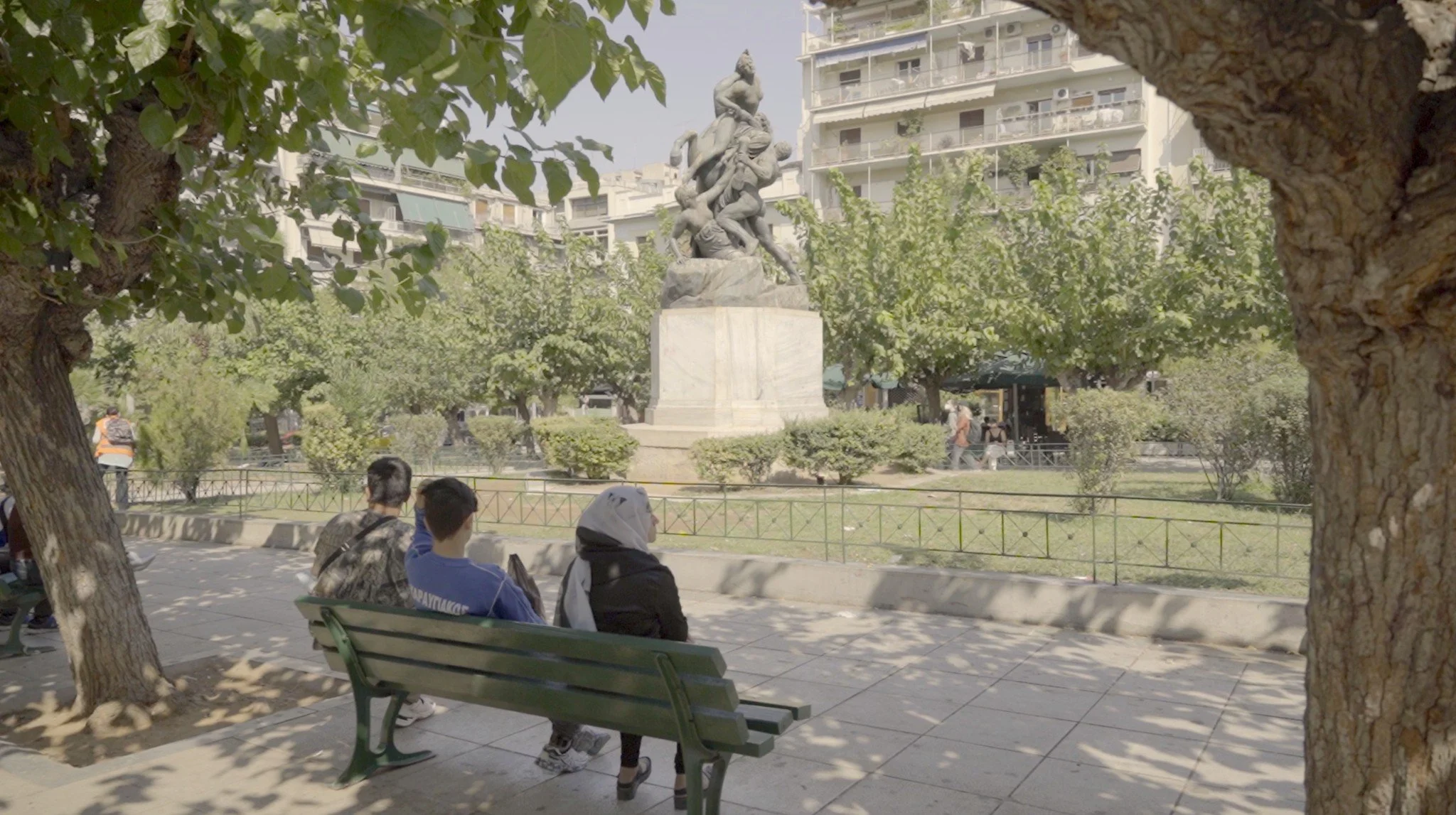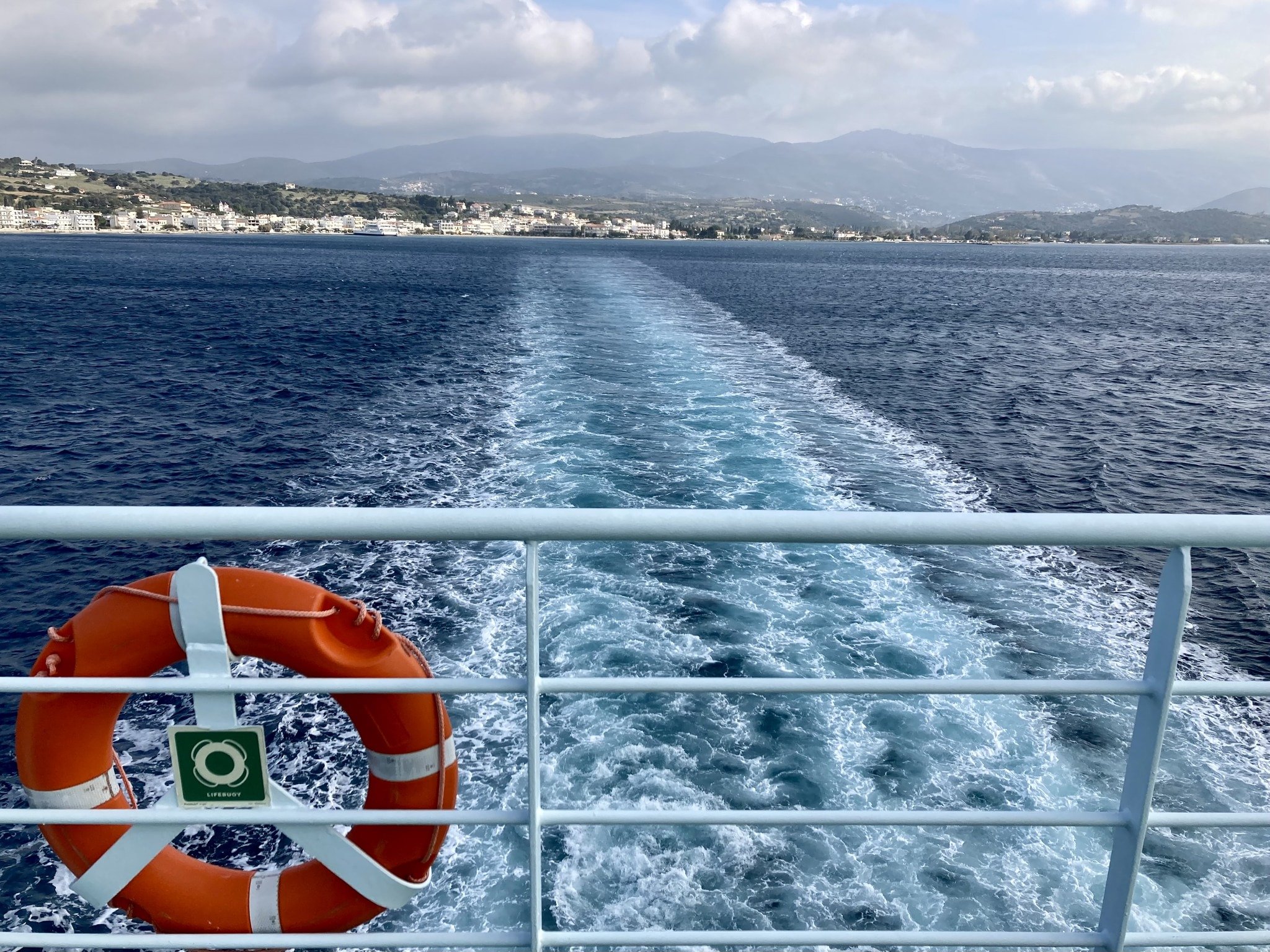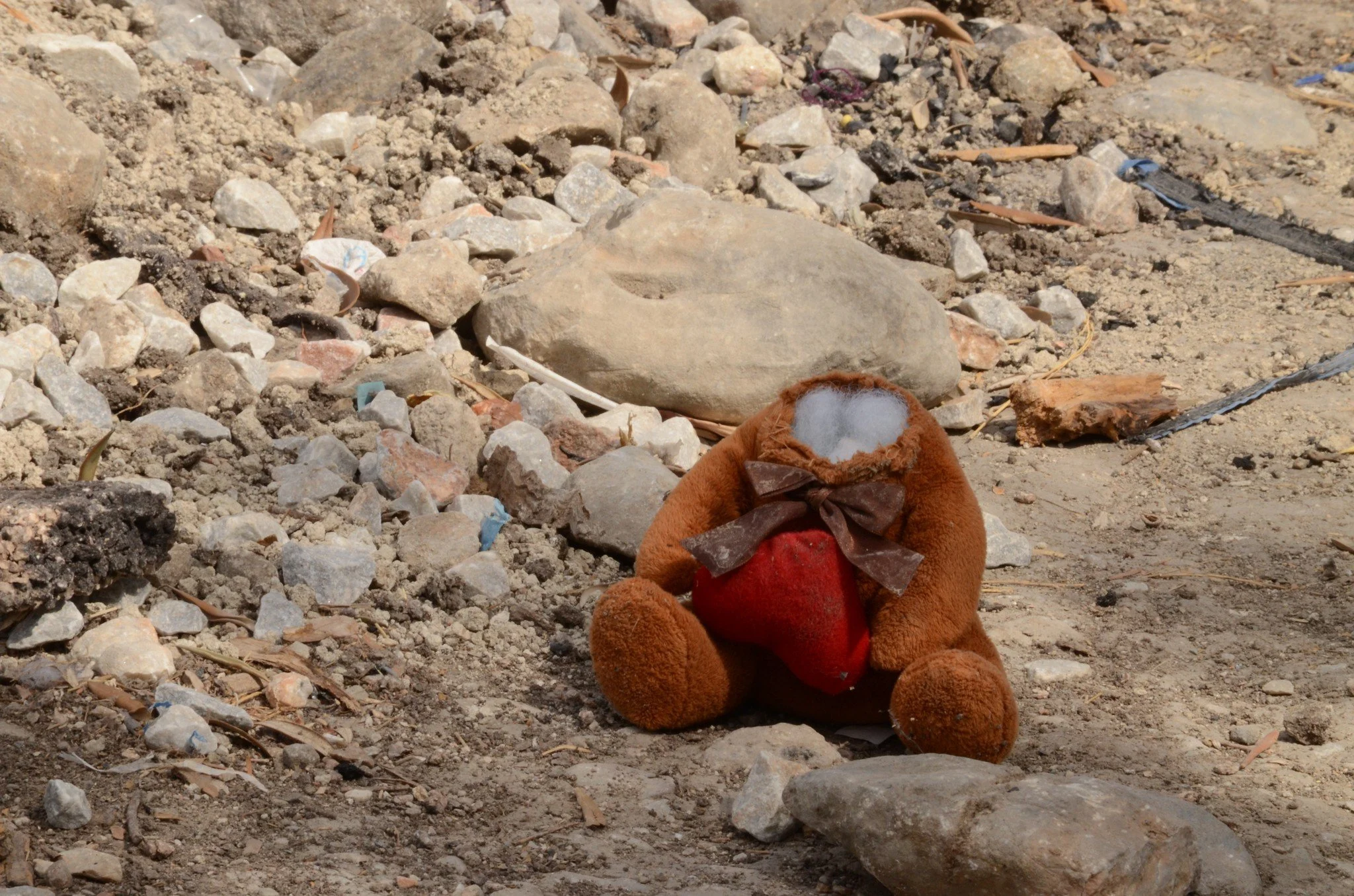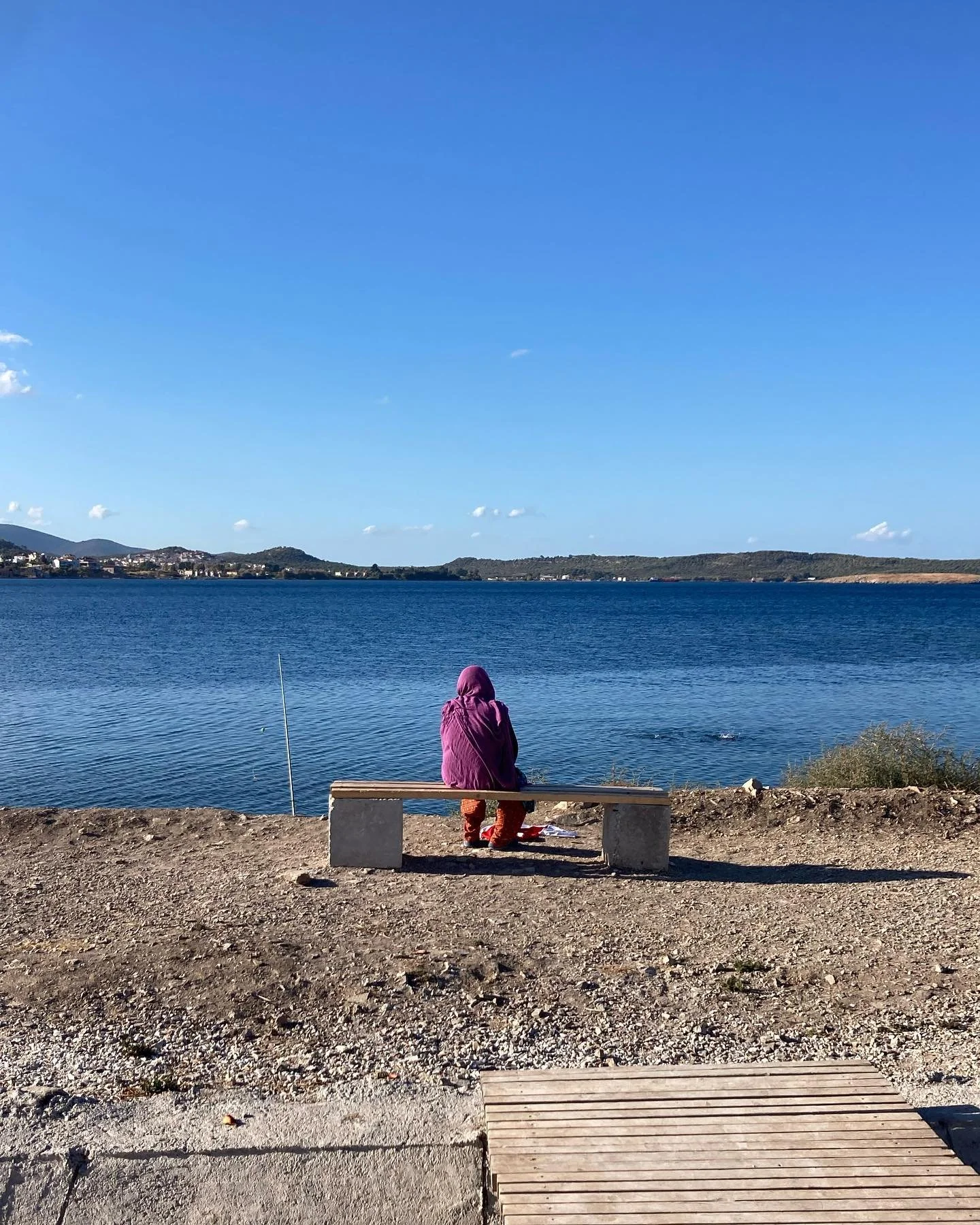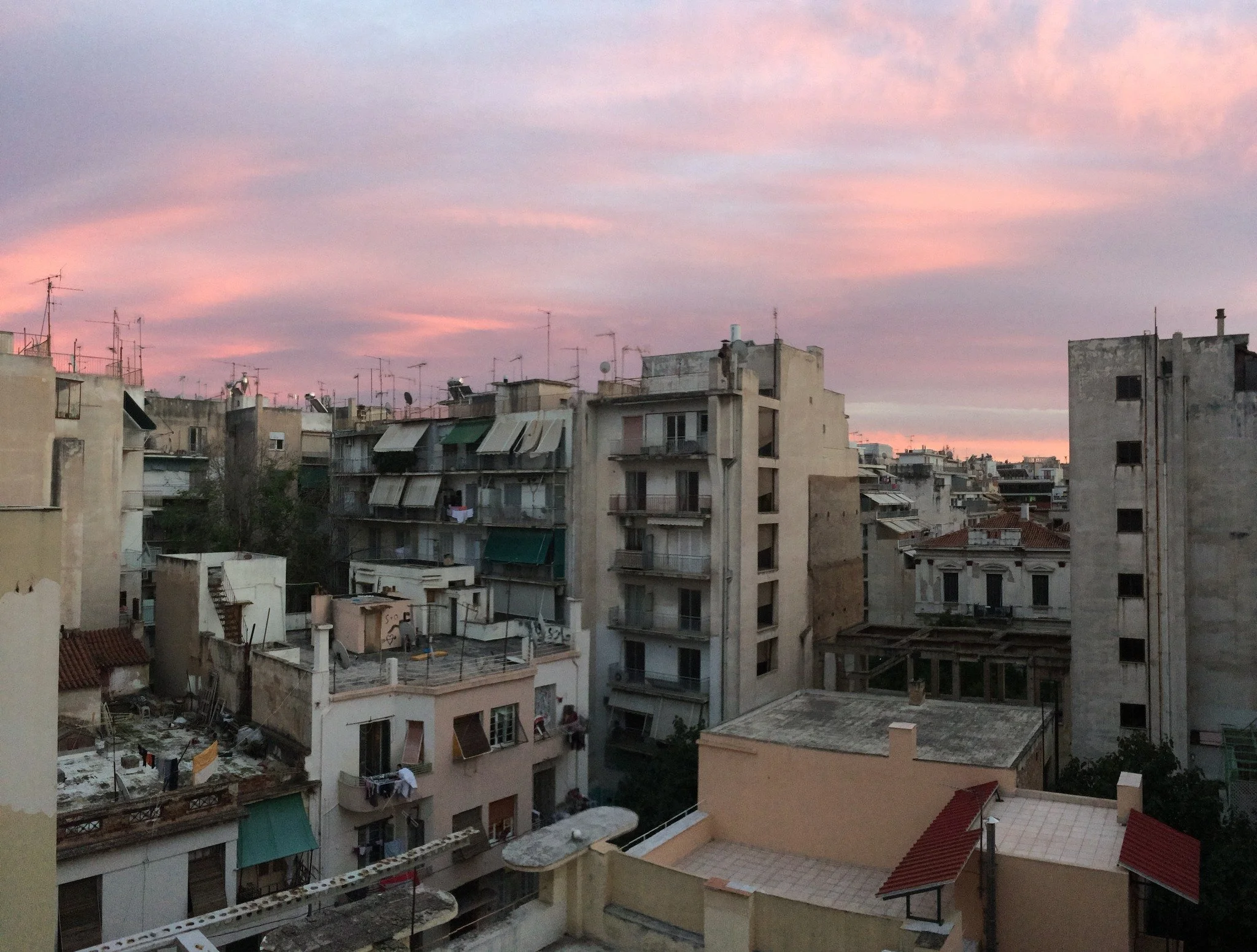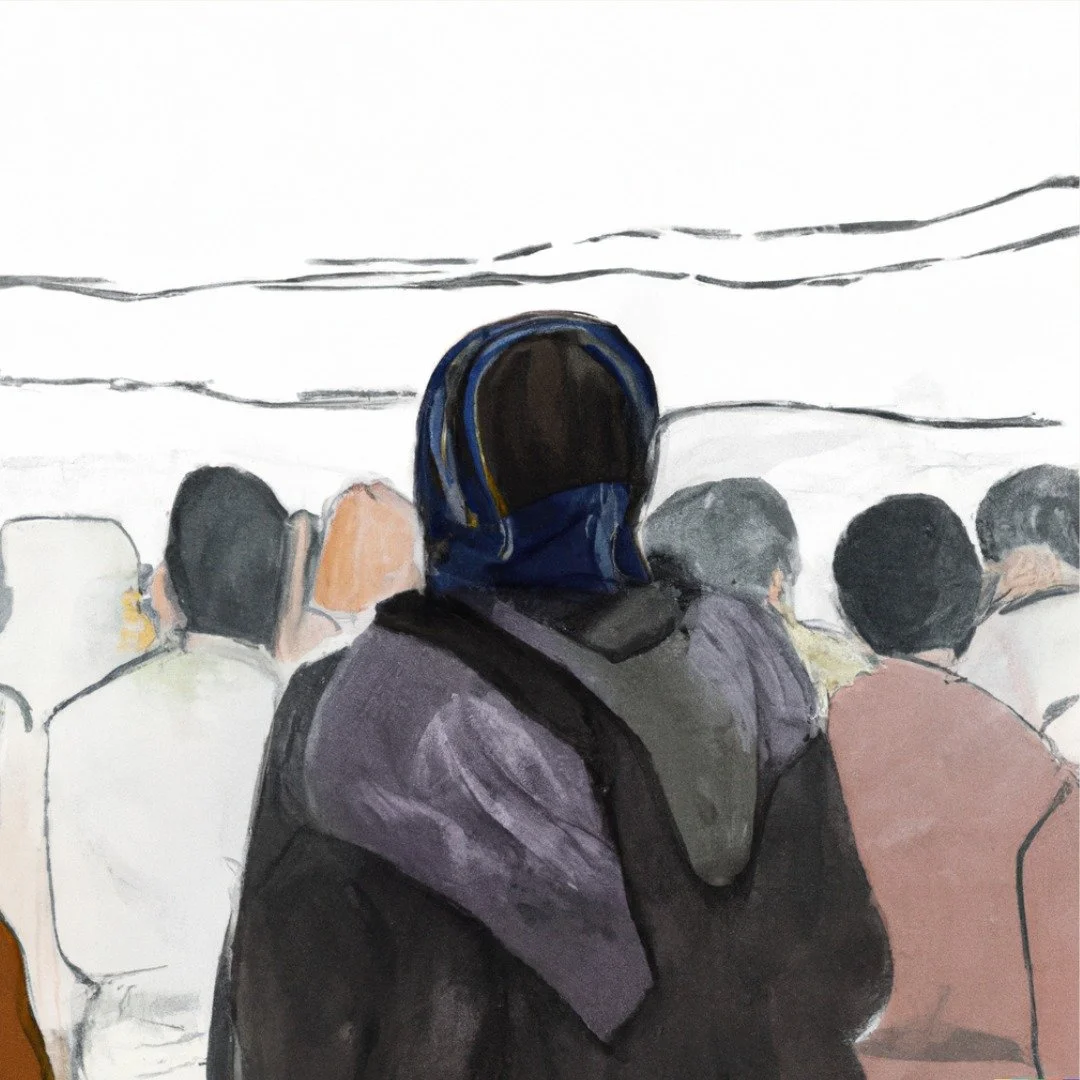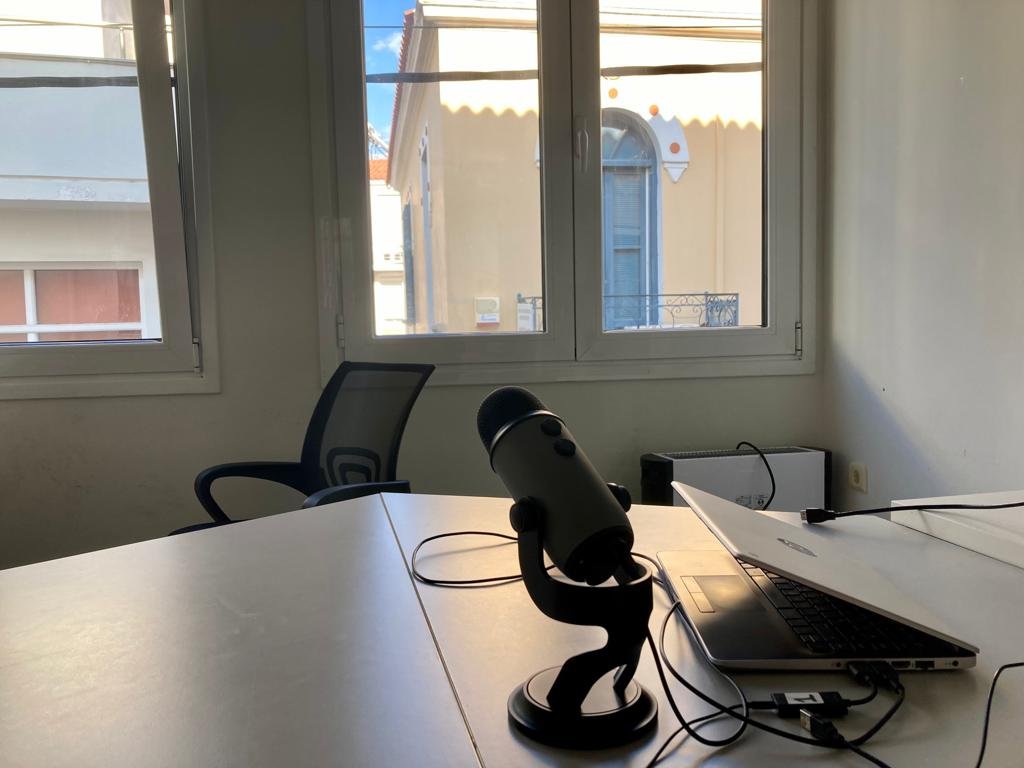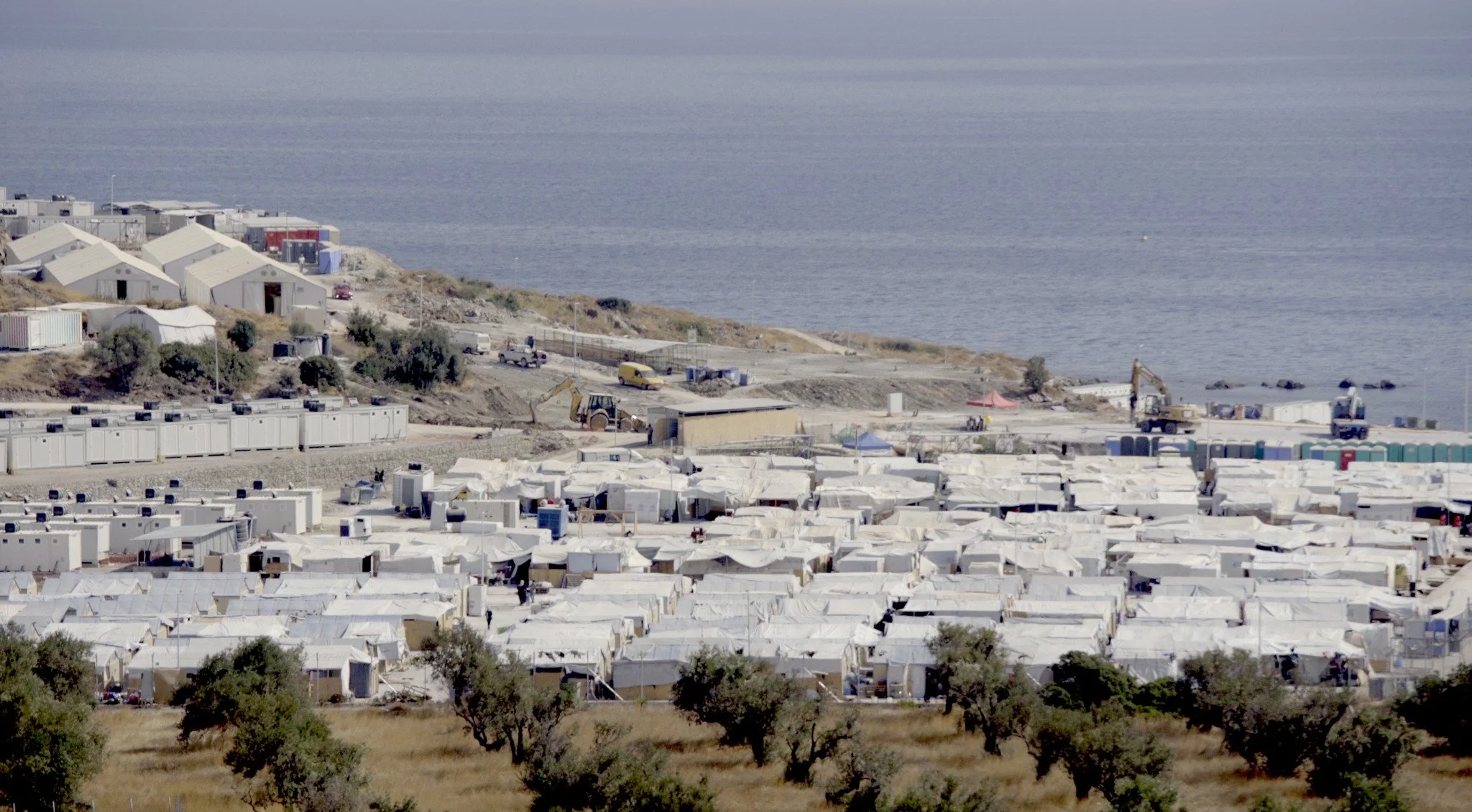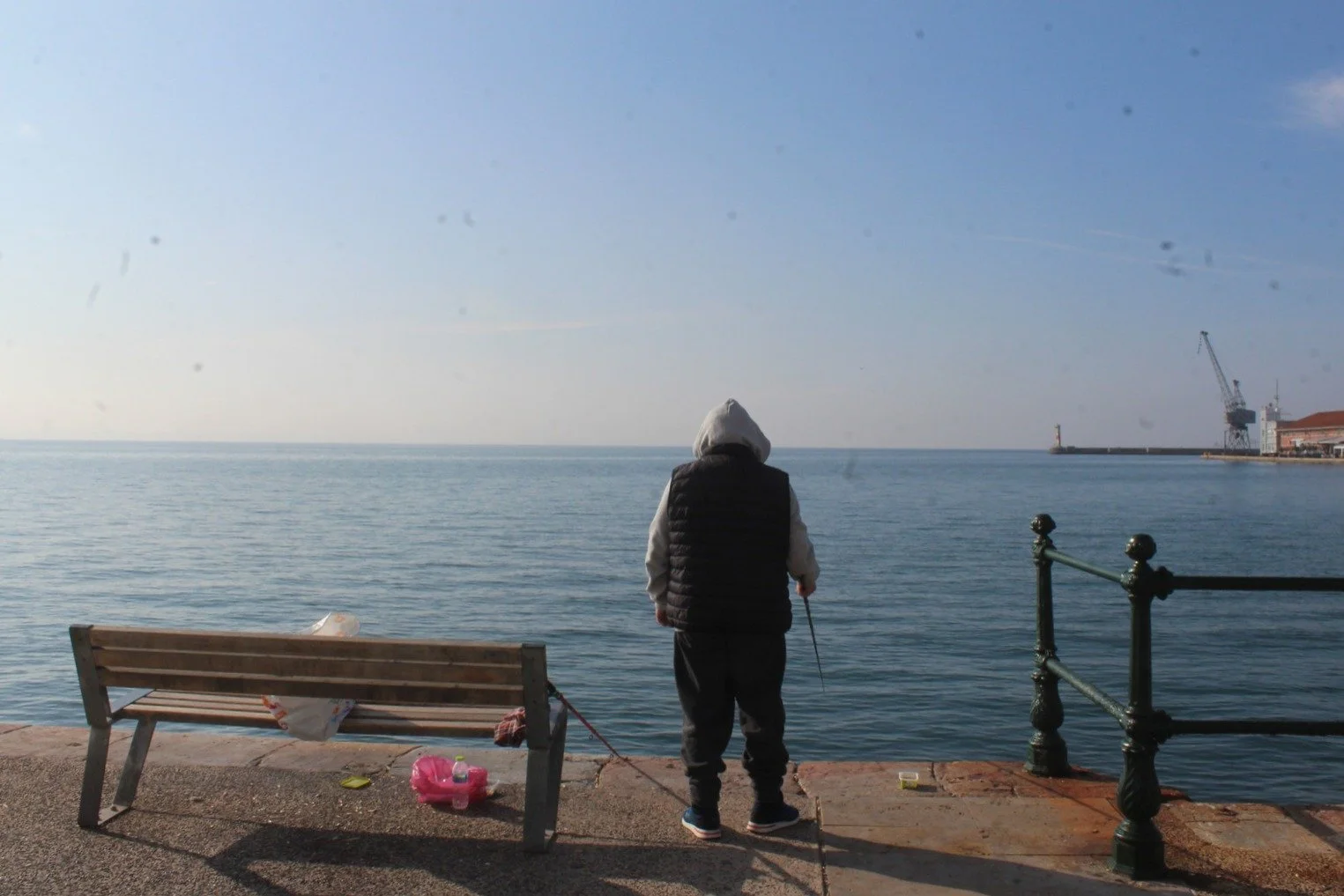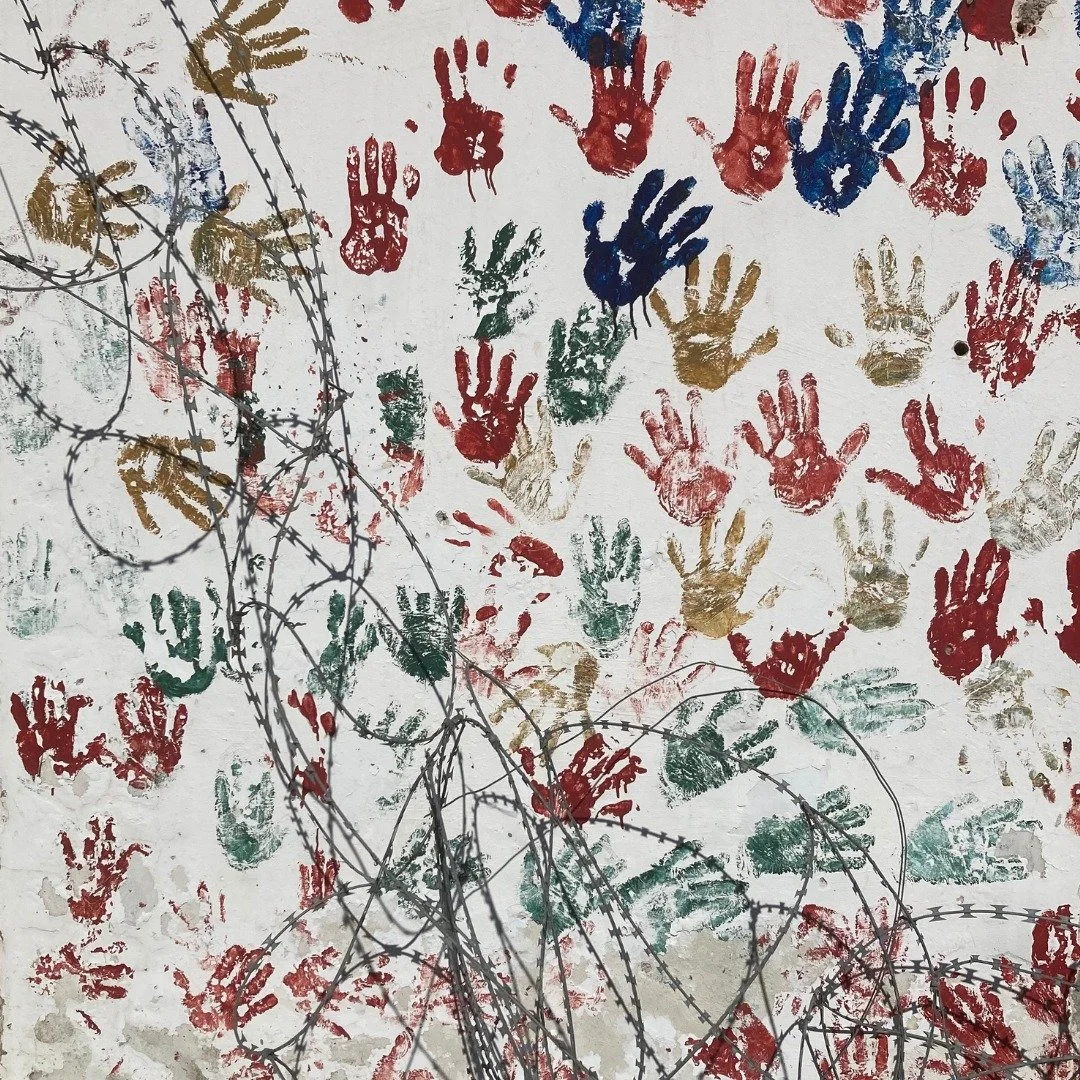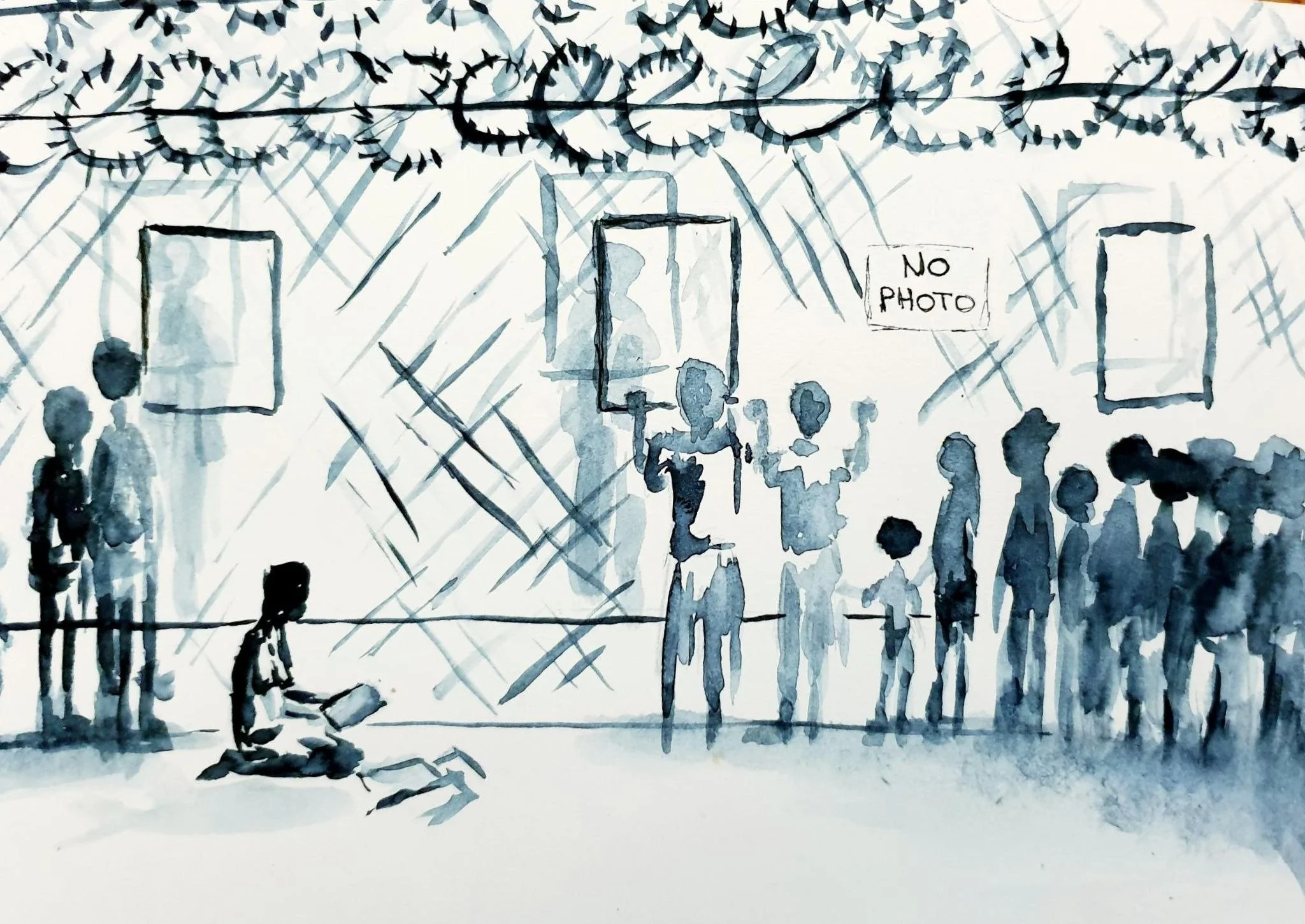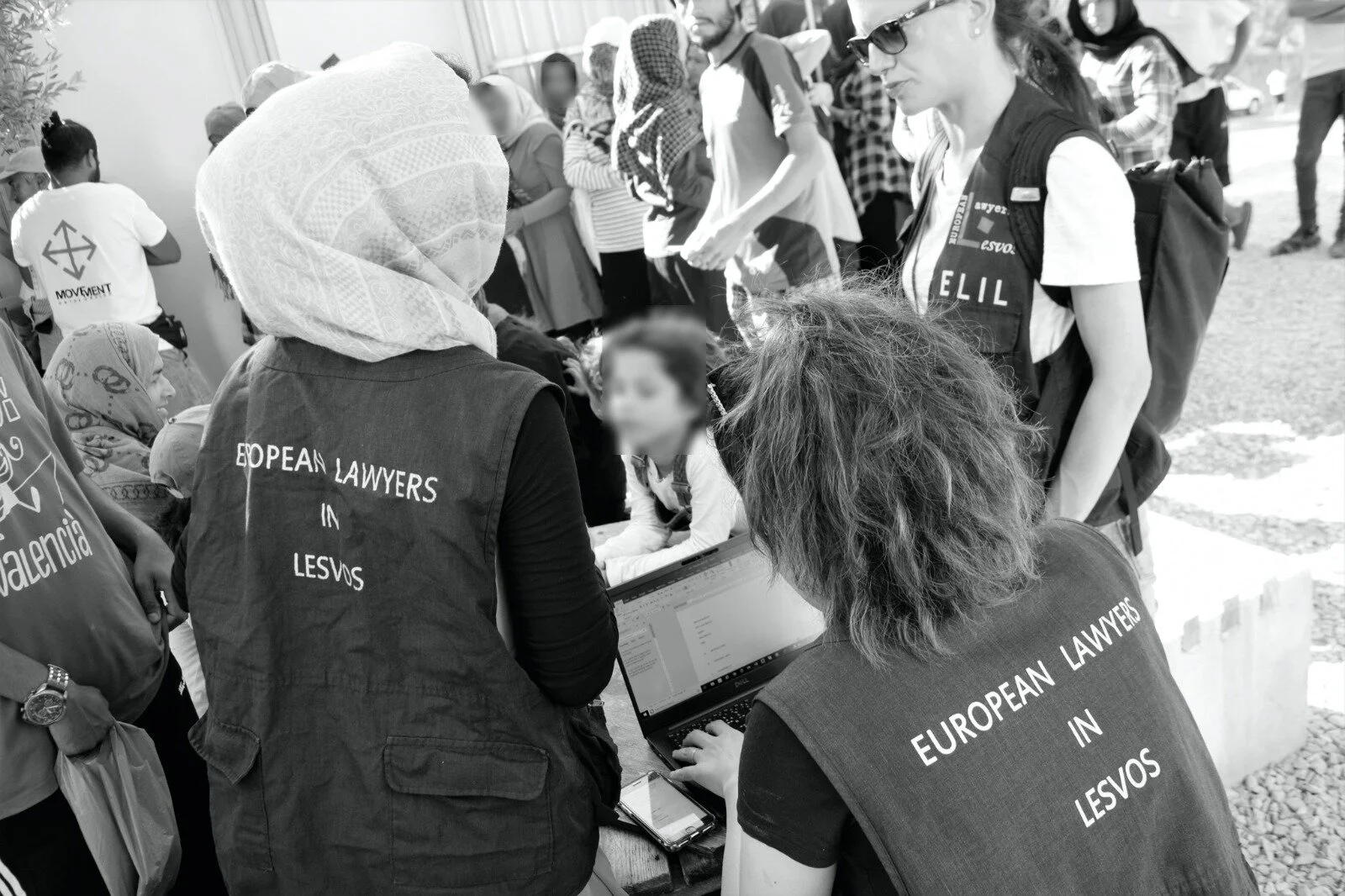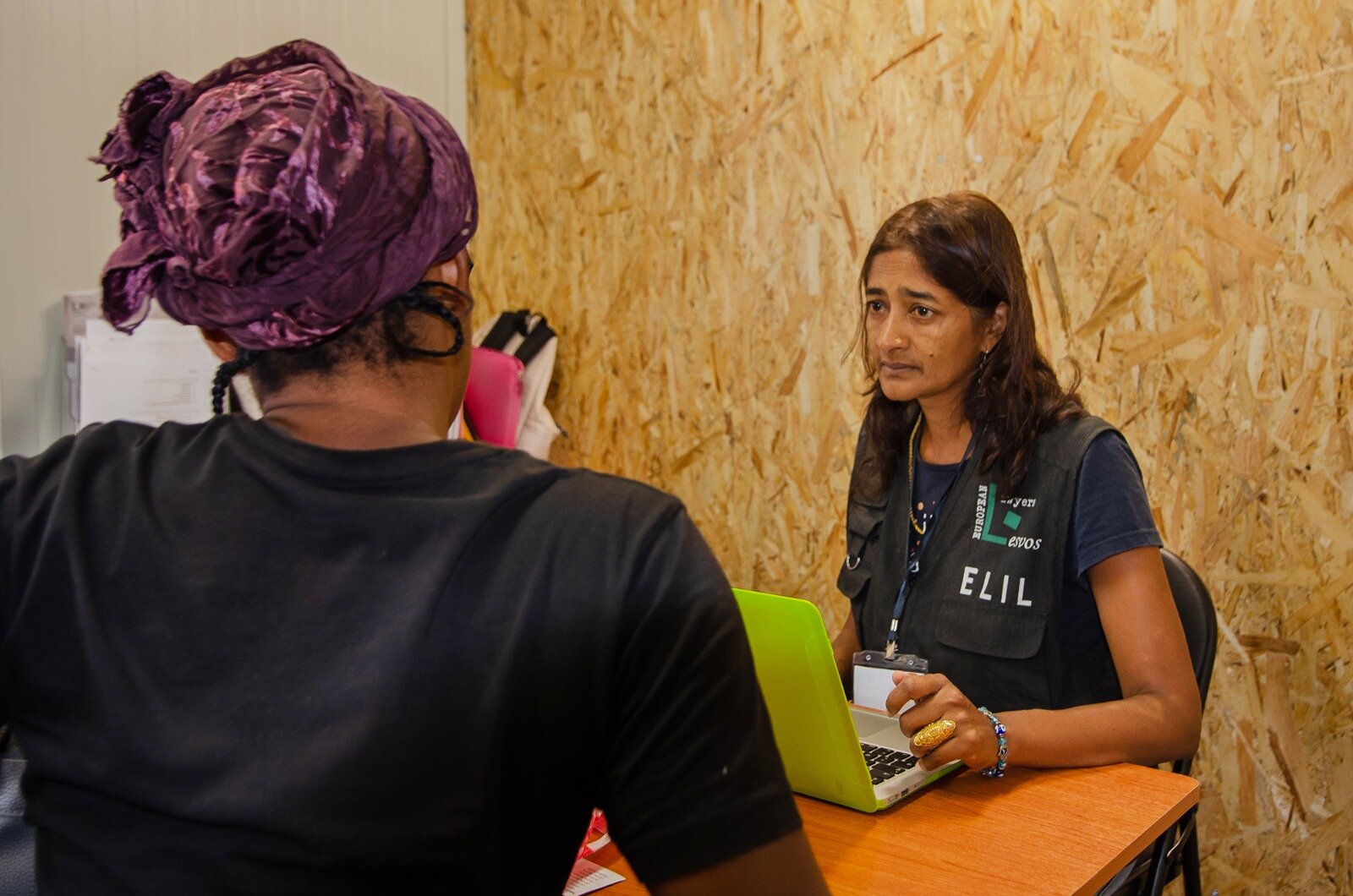Case Studies
Over the past six years, ELIL has assisted over 25,000 people. Below, we shed some light on the stories behind the numbers.*
To read our privacy and Confidentiality in External Communications Policy, click here.
“If a person is ill, they must go to a doctor. If a person has a legal problem, they have to choose someone who has this qualification, as is the case for European Lawyers in Lesvos. They gave me back hope. I thought I would never be reunited with my wife again.”
Family reunification between siblings
In June 2022, an unaccompanied child from Syria contacted ELIL to express his interest in family reunification. After obtaining authorisation from the Public Prosecutor, our legal team communicated with the Asylum Service to schedule a registration date for the minor, which was set for December 2022. During this time, we held several meetings with his sister to determine the documents needed for the family reunification request. We sent a detailed list of necessary documents to the sister to help her collect as many as possible.
In December 2022, our team assisted with the registration of the case with the Asylum Service and submitted several available documents. We had a three-month period to submit additional documents, during which we maintained communication with the boy, his sister and the social worker assisting the case. After the sister signed several documents and the lawyer reviewed them, we submitted everything to the Asylum Service within the deadline. The Asylum Service sent the official request to the German authorities, who responded positively to the family reunification request.
Currently, we are waiting for the Greek authorities to finalise the process of relocating the boy to Germany and he will travel in July 2023. This case highlights the crucial role that ELIL plays in facilitating family reunification for unaccompanied minors. By providing legal assistance, communicating with relevant parties and guaranteeing that all necessary documents are obtained, ELIL helps to ensure that vulnerable children receive the assistance they need during a difficult and often confusing process
Navigating Jurisdiction Challenges: Securing Refugee Status for a Single Parent Family
In April 2022, the ELIL team in Athens received a referral for legal support for a single parent family from DRC. The family consisted of a single woman with two children, aged six and one, residing in Elaionas camp. Their initial asylum claim had been rejected, and they had an appointment for the registration of their subsequent claim. In late April 2022, the responsible ELIL lawyer prepared the applicant for the registration process and accompanied the family to the designated authority. However, the authority responsible for registration and examination, declared itself incompetent to handle the new asylum claim. They argued that RAO Lesvos, which had already assessed the initial claim, should be the competent authority. The lawyer intervened by contacting both the administrative and asylum authorities in Lesvos, seeking clarification on the matter. After thorough engagement, the authorities in Lesvos confirmed that they lacked the jurisdiction to evaluate the applicant's asylum claim. As a result of the ELIL lawyer's persistent efforts, RAO Alimos eventually agreed to register the subsequent asylum claim. The family was granted a new appointment for the registration process, allowing their case to move forward.
In June 2022, the ELIL lawyer accompanied the family for the registration of their subsequent asylum claim. She also submitted a memo to provide further support to their case. The asylum service reviewed the case and issued a positive decision on the admissibility of their claim. The family was called for an asylum interview, which took place in late June 2022. The ELIL lawyer prepared and represented the applicant during the interview, and they also submitted a legal memo to strengthen their case. Finally, in November 2022, the family was granted refugee status.
Currently, the ELIL lawyer is continuing to assist the family with the issuance of identification and travel documents. This case highlights the importance of providing legal aid during asylum procedures, particularly for subsequent asylum applications. These cases undergo stricter scrutiny and the chances of receiving a positive decision are significantly reduced
Empowering an Unaccompanied Child's Journey from Syria to Germany with ELIL's Legal Support
In June 2022, an unaccompanied child from Syria contacted ELIL to express his interest in family reunification. After obtaining authorisation from the Public Prosecutor, our legal team communicated with the Asylum Service to schedule a registration date for the minor, which was set for December 2022. During this time, we held several meetings with his sister to determine the documents needed for the family reunification request. We sent a detailed list of necessary documents to the sister to help her collect as many as possible.
In December 2022, our team assisted with the registration of the case with the Asylum Service and submitted several available documents. We had a three-month period to submit additional documents, during which we maintained communication with the boy, his sister and the social worker assisting the case. After the sister signed several documents and the lawyer reviewed them, we submitted everything to the Asylum Service within the deadline. The Asylum Service sent the official request to the German authorities, who responded positively to the family reunification request.
Currently, we are waiting for the Greek authorities to finalise the process of relocating the boy to Germany. This case highlights the crucial role that ELIL plays in facilitating family reunification for unaccompanied minors. By providing legal assistance, communicating with relevant parties and guaranteeing that all necessary documents are obtained, ELIL helps to ensure that vulnerable children receive the assistance they need during a difficult and often confusing process.
Securing Legal Aid and Protection for an Unaccompanied Child in Lesvos
In 2022, an unaccompanied child suffering from severe medical conditions arrived in Lesvos and was incorrectly registered as an adult by the authorities. An ELIL lawyer provided assistance to the child.
Following the difficult and prolonged process of correcting the age of the unaccompanied child discussed in our previous post and once the age assessment was successfully conducted, new evidence emerged that was crucial to the case. The ELIL lawyer representing the child contacted the Asylum Service and requested a supplementary interview to ensure that all relevant details could be taken into account.
Thankfully, within two months of the child's age being recognised, the supplementary interview took place. The ELIL lawyer was present during the interview and provided medical and social service documents in support of the case. With this evidence and a legal memo drafted by the lawyer, the applicant's case was strengthened.
A few months later, the child received a positive decision on their application. This outcome is a testament to the importance of having legal assistance for unaccompanied children in the asylum process, to ensure that they receive the necessary support and protection.
Reuniting Siblings Across Borders: A Greece-Switzerland Family Reunification Case
The team in Athens addressed a family reunification case of a boy with his half-sister residing in Switzerland. The child believed he had already filed for family reunification when he was still on the island, but the lawyer on the mainland who took over the case found that no request had been filed. One of the challenges in this case was the fact that the half-siblings had not been found in the country of origin, but instead developed a close sibling bond during the child's journey from Somalia to Europe. Furthermore, the absence of identification documents posed another challenge as the minor and his sister were from Somalia where it is common for citizens to not have identification documents including the birth certificate.
ELIL’s lawyer contacted the minor's sister and together they drew up a detailed statement, in which the child's sister explained in detail the course of their brotherly relationship. The lawyer ensured that all the available documents of the child's sister and her husband were also submitted, in order to communicate to the Swiss authorities all the facts that proved that it is in the best interests of the child to move to Switzerland and live with his sister. When the Swiss authorities requested further information, the lawyer assisted the minor’s sister in communicating with the Swiss authorities for the pending family reunification case. They drafted the answers’ letter to the questions that the Swiss authorities addressed to the minor’s sister, highlighting her active role in the Somali community of Lausanne and her capability to help in the upbringing and smooth living of her brother.
In the end, the Swiss authorities responded positively to Greece's take-charge request and the minor will soon be transferred to Switzerland to live with his sister and her family. This case underscores the critical role that ELIL plays in providing legal aid to children. For them, navigating complex legal systems and filing for family reunification can be particularly difficult. ELIL’s lawyers work tirelessly to ensure that they receive the legal assistance and support necessary to achieve reunification with their loved ones
Empowering Vulnerable Women: A Story of Survival in Greece's Asylum System
In December 2022, a young single mother from Afghanistan approached our team for assistance with her asylum interview. Despite arriving in Greece six months earlier, she was only able to submit her asylum application in October, after enduring three weeks of homelessness on the streets with her six-year-old child.
As a victim of sexual and gender-based violence in her home country, she fled persecution on the grounds of her gender. The safe-third-country concept heightened her fear of being returned to Turkey and ultimately Afghanistan. An ELIL lawyer helped the woman prepare for her asylum interview and represented her on the day of her hearing. Due to her vulnerable profile, the application was examined on both admissibility and eligibility on the same day. The lawyer submitted a legal memo to support her case and the asylum service eventually granted the woman and her child refugee status, on the grounds that they faced a serious risk of persecution in their country of origin.
Thousands of women and girls in Greece are stranded in camps or left to live on the street with no access to shelter and basic services. Legal assistance can make all the difference as they seek safety and security for themselves and their families.
From Undocumented and Homeless to Refugee Status: The Impact of Direct Legal Aid in Athens
In March 2022, the ELIL team in Athens provided legal aid to an Iranian couple. They were undocumented and experiencing homelessness; one of them suffered from serious depression and had no access to medical services. Despite the lawyer’s efforts to expedite the process, the appointment for registering their asylum claim was set for September 2022.
In July, however, the authorities informed ELIL that a slot had opened up the next day. After registering their claim, the couple gained access to medical services and cash assistance, and our legal team provided several preparation sessions to prepare the couple to share their story during the asylum interview. Due to the complexity of the case, the ELIL team was in frequent contact with the asylum authorities and with social workers and psychologists. In September 2022, the lawyer was present during both interviews and submitted a memo to support their case. Shortly thereafter, both applicants were granted refugee status.
The ELIL team then arranged for the couple to apply for passports and IDs through the Police Department for Aliens. Although one of the applicants received the documents before the end of 2022, the other had to visit the service multiple times due to bureaucratic errors. ELIL intervened to resolve the issue and by February 2023 both applicants had received their documents.
This case highlights the key role that direct legal aid can play in supporting highly vulnerable individuals who risk being disproportionately impacted by systemic failures or gaps in asylum and reception procedures. The assistance ELIL provided helped the couple access vital services, see their rights realised and, ultimately, receive refugee status.
Providing Access to Asylum for Vulnerable Populations: The Importance of Legal Assistance.
In December 2021, the ELIL Athens office was contacted by a transgender woman from India. She was in a vulnerable situation and, due to a recent government decision affecting new arrivals to mainland Greece, unable to register her asylum claim. As a transgender person, she had faced serious episodes of discrimination, abuse and exploitation.
The ELIL team immediately stepped in and conducted a needs assessment. They coordinated with other organisations to ensure that the woman received medical and psychological support and secured a safe place to stay. After frequent contact with the Vulnerability Unit of the competent Asylum Office, the team managed to help her register an application for international protection.
An ELIL lawyer then prepared the applicant for her asylum interview, which took place in October 2022, and represented her on the day. Because of the nature of the claim and the applicant’s vulnerable state, her case received a thorough examination and an additional interview was required. The lawyer submitted a legal memo to support the case and the woman was eventually granted refugee status. She is now waiting for her ID and travel documents.
Cases like this underline the crucial importance of providing direct legal assistance to those who are already in a highly vulnerable condition. Being unable to access the asylum procedure - and consequently also basic services - can significantly increase the risks linked to these vulnerabilities.
From Afghanistan to Germany: A Minor's Journey to Family Reunification
ELIL was recently contacted by a minor from Afghanistan who wanted to apply for family reunification with his uncle in Germany. After becoming separated from the rest of his family (whom he has not been able to contact since) at the Iran/Afghanistan border, he arrived in Greece alone.
The minor was supported through the entire procedure by an ELIL lawyer, who communicated with the Greek asylum agency and Dublin unit, gathered the required paperwork and got in touch with his uncle. German officials initially denied the request for family reunification, stating that there was insufficient proof that the child and his uncle were related, and made an urgent request for a DNA test. The procedure was coordinated by ELIL's lawyer, who ensured that everything was handed in on time and that the German authorities received the DNA results. The request was finally approved in early December and the child left for Germany a few days later.
ELIL’s teams in Greece provide assistance with family reunification applications under the Dublin Regulation. Over the past six years, we have helped hundreds of people reunite with family members in other European countries.
Overcoming Adversity: The Journey of a Transgender Asylum woman from Pakistan.
In May 2022, the ELIL team in Athens assisted a transgender woman from Pakistan, helping her to schedule her asylum interview, leave detention and access accommodation, medical and psychological care. A month later, a merged interview took place on the basis of both admissibility and eligibility criteria. As Pakistan is on the list of safe countries of origin, an accelerated process was initiated.
The interview was extremely challenging and lasted many hours, because the applicant had experienced violence, discrimination and abuse in her home country, as well as during the journey and upon arrival in Europe.The ELIL team provided extensive preparation ahead of the interview and accompanied the applicant to the asylum service. Additionally, a legal memo was submitted. In October, the woman was finally granted refugee status.
At ELIL we believe that refugees and asylum seekers, particularly those who are most vulnerable, should receive free, expert legal assistance tailored to their specific needs
Surviving an international trafficking network
ELIL recently assisted a vulnerable woman from DRC. The applicant, who was the victim of an international trafficking network, arrived on Samos in February 2020. Due to several serious medical conditions, she was referred for her asylum procedure on the mainland.
The woman got in contact with ELIL through the organisation responsible for her housing. An ELIL lawyer liaised with the competent asylum service and the interview was rescheduled based on her medical needs. ELIL provided preparation, assisted the applicant during her interview and submitted a legal memo to support her case.
A few weeks later, she received a positive decision. Our lawyer supported her in obtaining all the necessary documents and referred her to actors providing social services so that she could receive assistance with her resettlement and financial aid from the state based on her medical condition.
Access to flexible legal assistance
In 2022, ELIL assisted an applicant from Egypt, which is on Greece’s list of safe countries of origin. Egyptian nationals seeking asylum are examined under an accelerated procedure that assumes they are not at risk of persecution or serious harm in the event of return. Unless people can cite significant reasons why this is not the case, their application is rejected as manifestly unfounded.
In this case, the applicant registered his asylum claim in December 2020 and was given an interview date in April 2023. However, in early September 2022, he received a notification from the Asylum Service informing him that his interview would take place in two weeks’ time.
Despite the short notice, an ELIL lawyer prepared him and represented him on the day. Due to the nature of the claim and the applicant’s vulnerable state, his asylum claim was examined thoroughly and a supplementary interview was required. ELIL also submitted a legal memo to further support his case. A few days after the interview, the applicant received refugee status.
Cases such as this one demonstrate how important it is for people to be able to access comprehensive, flexible legal assistance even at very short notice
Navigating a complex asylum system from detention
ELIL recently assisted an Afghan man in detention. He had crossed the border in northern Greece in summer 2022 and made his way to Athens, where he lived for a few days in precarious conditions, unable to register his asylum claim. He was stopped by the police and placed in a detention centre because he was not carrying the required documents.
The applicant first got in touch with ELIL in the beginning of August. Our team liaised with the authorities to ensure that he was able to express his intention to apply for asylum. Following communication with the competent asylum service, an ELIL lawyer accompanied the applicant to register his asylum claim. He remained in detention and was given an interview date ten days later.
ELIL provided preparation and our lawyer was present during the asylum interview and submitted a legal memo to support his case. Twenty days later, the applicant received a positive decision and was immediately released from detention. Without legal assistance, it would have been extremely difficult for him to submit his claim, navigate the complex asylum procedure and secure his release
Assisting an Unaccompanied Child in Detention
The ELIL Athens team was contacted by an unaccompanied child in detention. The boy had recently arrived in Greece and was living alone on the street. He was stopped by the police and, because he was not carrying the required documents, he was placed in a detention centre. He tried to inform authorities that he was a child and presented his Afghan ID but, with no interpretation available, he was incorrectly registered as an adult.
After weeks spent living in traumatic conditions in an adult detention facility, the boy finally managed to contact ELIL. Following a visit to the centre, our lawyer informed authorities of his age and his wish to apply for international protection. The ELIL team liaised with the asylum office to prioritise his release, accompanied the child when he submitted his document and informed him about the asylum process and his rights.
On the day of the registration, the asylum service officially recognised him as a child and ELIL liaised with authorities to ensure his immediate transfer from detention to a shelter for unaccompanied minors.
Without the support of a lawyer, it would have been almost impossible for the child to prove his age, apply for international protection and leave the dangerous confines of the adult detention centre.
A LGBTIQ+ Refugee’s Journey
LGBTIQ+ asylum seekers and refugees are vulnerable to particular threats in their home countries, as well as during their journey and upon arrival in Europe.
In early 2022, ELIL provided support to one such applicant. As a transgender woman, she had experienced discrimination for most of her life as well as surviving abuse and exploitation in her home country and during her long journey to Greece. Our lawyers have coordinated with other actors to help her access medical and psychological support and accommodation and assisted her in registering an application for international protection.
Following a government decision in November 2021, new arrivals to mainland Greece were left largely unable to register their asylum claims, with exceptions only made for particularly vulnerable cases. ELIL made contact with the vulnerability unit of the relevant asylum office, but protracted delays in processing meant that the applicant spent several weeks living in precarious conditions in Athens, with no access to housing and healthcare and at significant risk of suffering further abuse and exploitation.
Alone on the streets and lacking proper documentation, she was stopped by police and placed in a detention centre. ELIL lawyers liaised with the authorities and accompanied her to an asylum office where she was able to register her claim. She was then released from detention and immediately given a date for the asylum interview.
Providing Comprehensive Support
In 2021, ELIL assisted a child who had arrived on Samos and had been incorrectly registered as an adult. The boy, from Sub-Saharan Africa, needed support after the birth certificate he submitted was not recognised. Based on this and other irregularities, ELIL submitted a report to the Ombudsman’s office highlighting the issues the child had faced.
Although by this time he had turned 18, it was recognised that he had been a child on entering the country. His geographical restrictions were lifted and he travelled to the mainland where he received further support from ELIL’s team in Athens. They helped him change his address at the asylum office and notified authorities of his particular vulnerability as a survivor of SGBV.
Despite this, the applicant’s asylum interview was scheduled within 48 hours and conducted remotely in a language that was not his native one. An ELIL lawyer was present during the interview, which took place in a camp, and submitted a legal memo as well as additional medical documents to strengthen his case for asylum. One month later, the applicant received refugee status.
The long road to refugee status
In January 2020, an Afghan woman landed on Lesvos. She had made the crossing with three of her young children, while a fourth, also a minor, was already living in Germany. ELIL assisted the woman in submitting an application for family reunification. The request was denied four times, with a final rejection issued in May 2021. The only option that remained was to apply for asylum in Greece.
Throughout this time, the family lived in dire conditions first in Moria and, after a fire destroyed the camp, in the new facility at Mavrovouni. This despite the fact that the mother was suffering from a number of serious medical conditions.
Shortly before the family was scheduled to attend their asylum interview, the Greek authorities issued a Joint Ministerial Decision designating Turkey as a safe country for people arriving from five countries, including Afghanistan. The applicant struggled to understand why she would now be required to answer questions exclusively about Turkey during what had become an admissibility interview.
The family passed this initial stage and were then asked to attend an eligibility interview, which examined why they fled Afghanistan. Both interviews were conducted remotely, without taking into consideration the vulnerabilities of the applicant. On both occasions, an ELIL lawyer attended and called attention to the mother’s medical record and the psychological toll that the year spent living in island camps had taken on her children. At long last, the family was granted refugee status.
Overcoming language barriers
In 2021, the ELIL team on Lesvos assisted a woman from West Africa with her application for asylum. Given her particular vulnerability as an SGBV survivor, we also referred her for psychological support and an application was made to house her in a shelter for victims of human trafficking. As a citizen of a country included on the list of safe countries of origin, her case was examined under an accelerated procedure.
The interview was postponed multiple times due to the difficulty of finding a translator for her native language. In the end, faced with living indefinitely in dire conditions in Mavrovouni camp, the woman elected to attend her interview in English, requiring her to describe her traumatic background in a language that she does not speak fluently.
ELIL provided a lawyer who offered legal support, was in constant communication with the asylum service and psychological support actors, accompanied her to the interview, which lasted eight hours, and submitted a supporting legal memo. A month later, with our assistance, her geographical restriction was lifted, allowing her to leave the island. At the end of June, she received refugee status.
A child is released from detention
“”I was so happy the day I was released and taken to the minors section. For me, this was the moment I knew that I was in Europe. I believe that my lawyer really helped me and cared for my life - they were there to advise me whenever I needed help. I really appreciated their support, and that of the whole organisation. I was lucky to have a lawyer. Many minors don’t have one and they are confused and don’t know what to do“”
In late 2019, an unaccompanied child was registered as an adult upon arrival to Lesvos and placed in detention. ELIL liaised with the police and the Greek Asylum service, accompanied the child to their interview and obtained a postponement and a referral for age assessment. We then submitted objections against detention at court, claiming the best interest of the child and that in the case of doubt, the benefit should always lie with the child. Following discussions with the judge, the child was released from detention and moved to the minors’ section of camp.
A child is reunited with family after the fire in Moria
In 2020, ELIL assisted an unaccompanied child from Syria in his family reunification case with a family member in the United Kingdom.
The family reunification request was accepted, but before the young boy was able to travel on from Moria, a fire destroyed the camp, leaving him homeless and temporarily without papers. With the scheduled departure date approaching and no documents, the child was at risk of missing his flight to the UK and remaining stranded in a precarious situation on Lesvos.
ELIL liaised with the police and the Asylum Service to secure new documents and safe accommodation as quickly as possible. With ELIL’s assistance, the boy was ultimately able to join his family in the UK.
An alleged minor is interviewed over the phone
A fifteen year old child, upon arrival in Lesvos, was incorrectly registered by the competent authorities as an adult. Despite declaring that he was a minor, he was not referred for an age assessment process.
Once ELIL began assisting the child, it was already too late to challenge the age registration. The only way of doing so was on request of the case worker during the first instance interview.
The interview was conducted over the phone with no video. This severely hampered the ability of the case worker to determine whether the minor might have been incorrectly registered as an adult. Our lawyer, who accompanied the applicant to his interview, insisted on the allegation of minority, resulting in the child being referred for age assessment.
““I slept outside on a mattress for 20 days. I think if I hadn’t met ELIL I would maybe have slept on the streets forever. ELIL was helpful and useful - without a lawyer the children in Moria don’t have their rights. The most important right is to have a lawyer.””
From Afghanistan to Germany: a child’s struggle to reunite with his brother
In 2020, ELIL was referred a fourteen-year-old Afghan child who wished to be reunited with his brother in Germany. The German Dublin Unit initially rejected the case on the grounds that his aunt, who was applying for asylum in Greece, had guardianship over him. ELIL submitted a re-examination request and asked that the asylum interview be postponed, on the basis that the family reunification request was still pending.
The German Dublin Unit issued a second rejection, and the Greek Dublin Unit pushed for the family reunification case to be closed. ELIL helped arrange for the child and his brother to take a DNA test and a further re-examination request was prepared, supported by DNA evidence. At long last, the German Dublin Unit issued a positive decision.
* All accounts have been anonymised to protect the identity of those we assist
